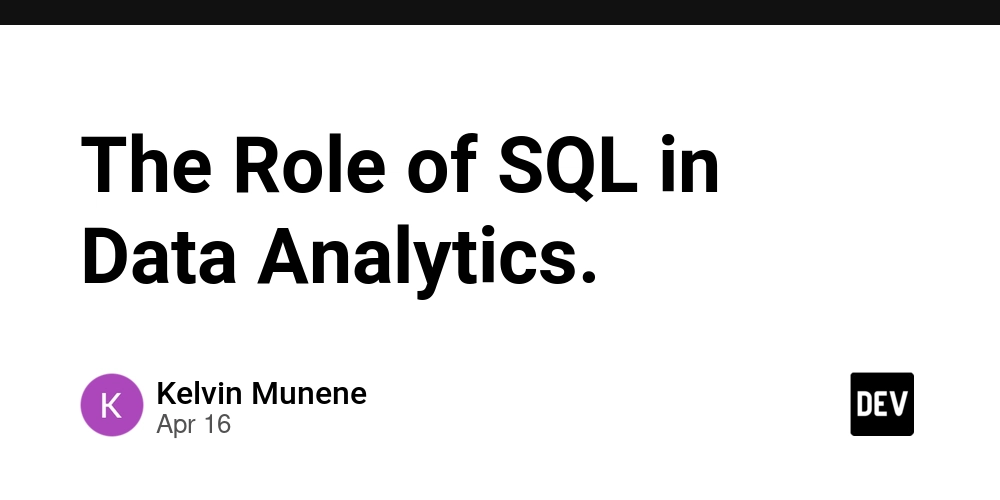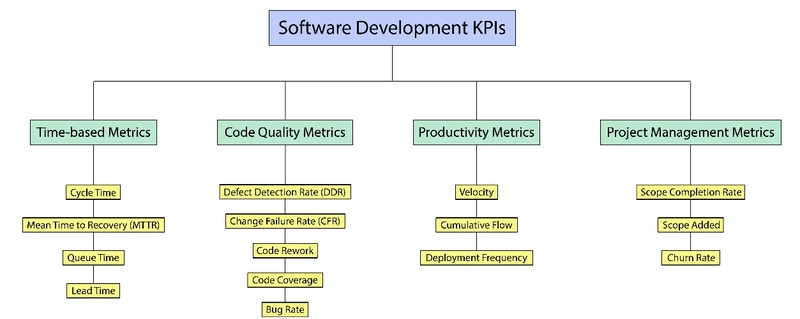The Role of SQL in Data Analytics.
Why Every Analyst Should Learn SQL SQL is the standard language for managing and querying relational databases. It’s used by analysts across industries to explore, clean, and analyze data stored in databases- say, You needed to retrieve data from a database eg a list of customers who purchased a product last quarter—SQL is what makes that possible. Why SQL is Essential for Data Analysts 1. Direct Access to Data SQL allows analysts to directly interact with databases, removing the need to go through engineers or wait on others for data pulls. You can quickly answer business questions on your own eg “What are our top-selling products by region?” 2. Powerful Data Manipulation Filtering, sorting, aggregating, joining multiple tables—SQL gives you powerful tools to explore and shape your data. These are daily tasks for an analyst, and knowing how to do them efficiently is crucial. 3. Make Better, Data-Driven Decisions SQL lets you explore trends and patterns directly from the source. This helps you validate assumptions, test strategies, and prioritize actions with confidence. 4. Universally Used Across Industries From tech and healthcare to finance and e-commerce, companies of all sizes rely on SQL. It’s a transferable skill that can open doors across countless sectors. 5. Increases Reproducibility and Transparency SQL scripts can be version-controlled and shared, which makes your work easy to audit, reproduce, and collaborate on—especially in larger teams or organizations with data governance practices. Real-World Examples of SQL in Action Marketing: Segment customers by behavior for targeted campaigns Finance: Generate revenue reports E-commerce: Analyze product performance by category Sales: Monitor pipelines and identify high-performing reps Final Thought: SQL as a Strategic Skill As a data analyst, your job is to find answers in data—and SQL gives you the language to ask the right questions. In fact, those who understand data can drive real impact—from spotting trends early to backing up strategy with hard numbers. It’s not about becoming a coder rather It’s about becoming more self-sufficient, more insightful, and more valuable to your team and your company.

Why Every Analyst Should Learn SQL
SQL is the standard language for managing and querying relational databases. It’s used by analysts across industries to explore, clean, and analyze data stored in databases- say, You needed to retrieve data from a database eg a list of customers who purchased a product last quarter—SQL is what makes that possible.
Why SQL is Essential for Data Analysts
1. Direct Access to Data
SQL allows analysts to directly interact with databases, removing the need to go through engineers or wait on others for data pulls. You can quickly answer business questions on your own eg “What are our top-selling products by region?”
2. Powerful Data Manipulation
Filtering, sorting, aggregating, joining multiple tables—SQL gives you powerful tools to explore and shape your data. These are daily tasks for an analyst, and knowing how to do them efficiently is crucial.
3. Make Better, Data-Driven Decisions
SQL lets you explore trends and patterns directly from the source. This helps you validate assumptions, test strategies, and prioritize actions with confidence.
4. Universally Used Across Industries
From tech and healthcare to finance and e-commerce, companies of all sizes rely on SQL. It’s a transferable skill that can open doors across countless sectors.
5. Increases Reproducibility and Transparency
SQL scripts can be version-controlled and shared, which makes your work easy to audit, reproduce, and collaborate on—especially in larger teams or organizations with data governance practices.
Real-World Examples of SQL in Action
- Marketing: Segment customers by behavior for targeted campaigns
- Finance: Generate revenue reports
- E-commerce: Analyze product performance by category
- Sales: Monitor pipelines and identify high-performing reps
Final Thought: SQL as a Strategic Skill
As a data analyst, your job is to find answers in data—and SQL gives you the language to ask the right questions. In fact, those who understand data can drive real impact—from spotting trends early to backing up strategy with hard numbers. It’s not about becoming a coder rather It’s about becoming more self-sufficient, more insightful, and more valuable to your team and your company.









































































































































































![[The AI Show Episode 144]: ChatGPT’s New Memory, Shopify CEO’s Leaked “AI First” Memo, Google Cloud Next Releases, o3 and o4-mini Coming Soon & Llama 4’s Rocky Launch](https://www.marketingaiinstitute.com/hubfs/ep%20144%20cover.png)




























































































































![[DEALS] The All-in-One Microsoft Office Pro 2019 for Windows: Lifetime License + Windows 11 Pro Bundle (89% off) & Other Deals Up To 98% Off](https://www.javacodegeeks.com/wp-content/uploads/2012/12/jcg-logo.jpg)



























![Is this too much for a modular monolith system? [closed]](https://i.sstatic.net/pYL1nsfg.png)






















































































































_Andreas_Prott_Alamy.jpg?width=1280&auto=webp&quality=80&disable=upscale#)
































































































![What features do you get with Gemini Advanced? [April 2025]](https://i0.wp.com/9to5google.com/wp-content/uploads/sites/4/2024/02/gemini-advanced-cover.jpg?resize=1200%2C628&quality=82&strip=all&ssl=1)













![Apple Shares Official Trailer for 'Long Way Home' Starring Ewan McGregor and Charley Boorman [Video]](https://www.iclarified.com/images/news/97069/97069/97069-640.jpg)
![Apple Watch Series 10 Back On Sale for $299! [Lowest Price Ever]](https://www.iclarified.com/images/news/96657/96657/96657-640.jpg)
![EU Postpones Apple App Store Fines Amid Tariff Negotiations [Report]](https://www.iclarified.com/images/news/97068/97068/97068-640.jpg)
![Apple Slips to Fifth in China's Smartphone Market with 9% Decline [Report]](https://www.iclarified.com/images/news/97065/97065/97065-640.jpg)




































































































































